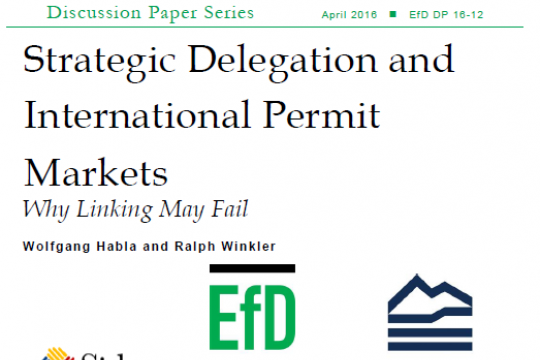Abstract: We analyze a typical principal-agent relationship in the context of international climate policy, in which the principals of two countries first decide whether to merge their domestic emission permit markets to form an international market. In the second stage, they delegate the decision on domestic permit supply to an agent. We find that principals have an incentive to select agents who care less for environmental damages than they do themselves. Moreover, international permit markets amplify this incentive, rendering linking less attractive. This may explain why we do not observe international permit markets despite their seemingly favorable characteristics.
EfD Authors
Files and links
Country
Sustainable Development Goals

